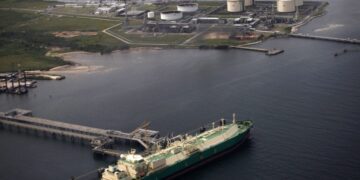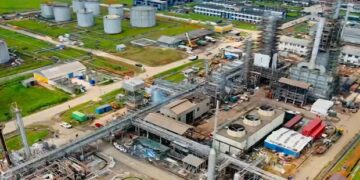The African Development Bank (AfDB) reiterates that Nigeria and other African countries are among the world’s most vulnerable to climate risks.
However, according to AfDB, in a statement on Tuesday, Africa is the least among continents that polluted the planet, noting that nations across the continent were grappling with financing constraints.
“Thus, resources from the international private sector, including multilateral development financiers such as the AfDB, are helping to catalyse climate action and green growth,” stated the bank. “For AfDB, greater involvement of the private sector is crucial to closing the gap in climate finance flows into Africa, which until recently, was dominated by non-private actors.”
For example, the bank said of the $29.5 billion invested in African climate finance in 2020, only 14 per cent was from private actors. According to the statement, this is significantly lower than comparable regions like Latin America and the Caribbean (49 per cent), East Asia and the Pacific (39 per cent) and South Asia (37 per cent).
It said these limited funds covered several African countries with relatively developed financial markets, such as South Africa, Nigeria, Kenya, Morocco, and Egypt, which attracted $4.2 billion.
“It is why the Bank Group has mobilised private sector financing for climate and green growth the centrepiece of its 2023 Annual Meetings scheduled for 22-26 May in Sharm El Sheikh, Egypt,” added the statement. “The meetings will discuss successful strategies to galvanise more resources, including within Africa, and investment opportunities in renewable energy and sustainable agriculture.”
The statement said the experts would consider how to make African countries’ rich natural capital to finance climate and green growth. It further said that about a dozen heads of state and governments were expected to attend.
“The AfDB believes there is much potential for climate finance in Africa to increase. The bank bases its view on a dataset of global private resources. Private equity funds under management were $6.3 trillion in 2021, while global pension fund assets in the 22 largest markets hit a new high of $56.6 trillion by late 2022,” the AfDB statement explained.
According to the statement, AfDB, the continent’s premier multilateral development finance institution, has begun providing solutions.
“It is implementing mechanisms to facilitate and channel access to global climate finance, particularly from the private sector.
(NAN)














































































